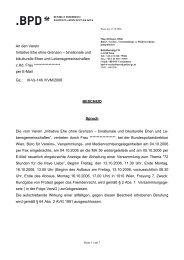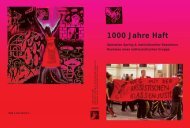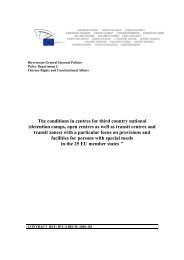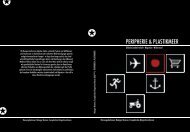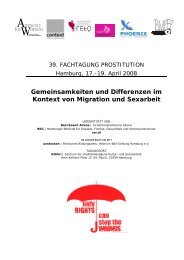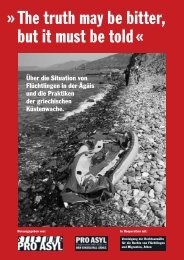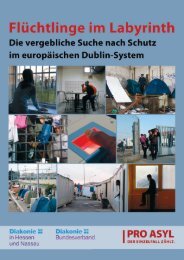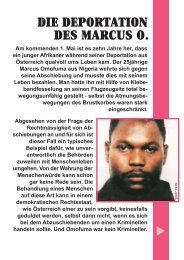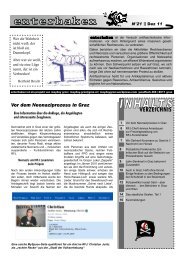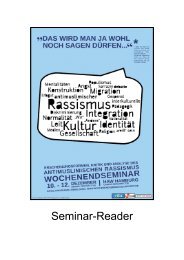Turin's CIE - International University College of Turin
Turin's CIE - International University College of Turin
Turin's CIE - International University College of Turin
Create successful ePaper yourself
Turn your PDF publications into a flip-book with our unique Google optimized e-Paper software.
● ● ●<br />
D.’S STORY (INTERVIEW 14)<br />
D. spoke to us on the telephone from inside <strong>CIE</strong> after five months <strong>of</strong> detention. His story<br />
struck us because he was suffering extremely, his voice wavering over the phone: “I think<br />
death would be better. I’ve lost everything”. D. said that before entering <strong>CIE</strong> he never had any<br />
mental health issues: “I’m losing my head. I’ve attempted suicide twice”. At the time <strong>of</strong> our<br />
interview, D. had been on a hunger strike for eight days as a desperate last plea for help. D. is<br />
a twenty-eight-year-old Moroccan who moved to Italy in 1997, as a teenager with a valid<br />
residence permit. He has worked in a variety <strong>of</strong> labouring jobs in Italy. He also met his<br />
partner here, although she is actually from another EU country (“EU Country 2”). They had a<br />
child together.<br />
D. explained to us about how he lost his job and he could not find enough work to survive. He<br />
fell in with the wrong crowd. He was convicted for trafficking drugs and he was sentenced to<br />
thirty-two months prison. D. spoke candidly about how he regretted breaking the law and<br />
now he wanted to contribute positively to society. D.’s Italian residence permit expired while<br />
he was in prison. He was then placed under house arrest, at which point the police came and<br />
took him to <strong>CIE</strong>: “I didn’t know before that was I going to be transferred in <strong>CIE</strong>. They didn’t give<br />
me any chance to talk with a lawyer. They told me they were going to take me to <strong>Turin</strong> and that<br />
I could speak with the judge there”. After D.’s original arrest, his partner and child moved back<br />
to EU Country 2 where she has family. D. is desperately hoping to be reunited with his young<br />
family and to be able to spend time with his child. D. had expected to be able to see his child<br />
after leaving prison. He was not psychologically prepared for <strong>CIE</strong> detention and he was<br />
having difficulty coping with the prospect <strong>of</strong> living inside <strong>CIE</strong> for up to eighteen months. D.<br />
found the environment in <strong>CIE</strong> particularly difficult: “I felt safer in prison. Everyday is worse.<br />
Nothing gets better here”. He believes that the structure <strong>of</strong> <strong>CIE</strong> is degrading and does not<br />
respect human dignity: “[Some <strong>of</strong> the staff], they look at you in an inhuman way, like if we were<br />
animals”.<br />
Shortly after the interview, D. was released from <strong>CIE</strong> due to health reasons. He was released<br />
without any place to sleep and he did not have any money. D. was fortunate to find an<br />
abandoned building <strong>of</strong> squatters to sleep in. Otherwise, he would probably have had no<br />
choice but to sleep on the streets, after exhausting any temporary homeless shelters that he<br />
might have been able to find. D. contacted us again approximately two months after leaving<br />
<strong>CIE</strong>. He was still outside <strong>CIE</strong> and waiting for documents enabling him to leave the country. He<br />
holds onto the hope <strong>of</strong> being allowed to travel to EU Country 2 to live with his partner and<br />
child.<br />
● ● ●<br />
34 | P a g e




